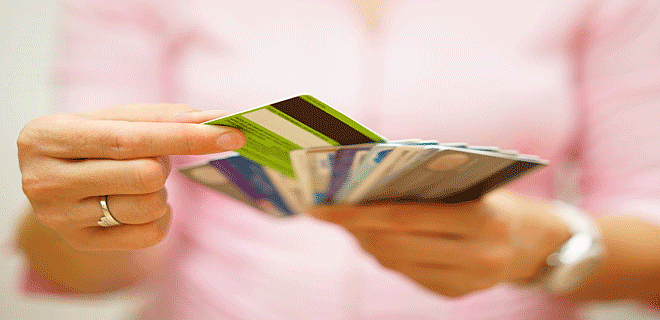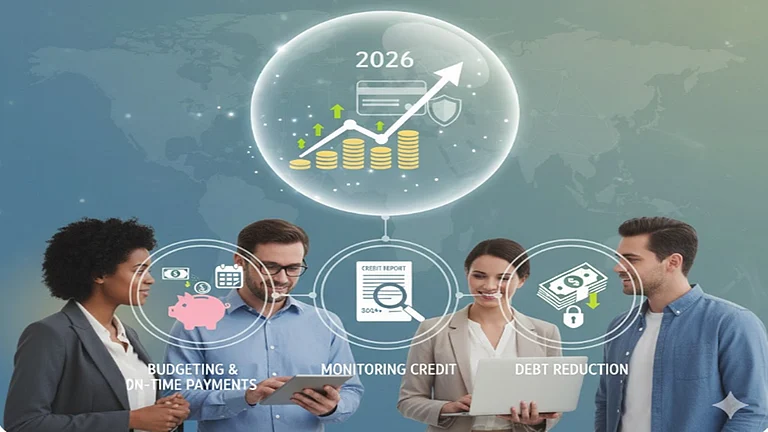Credit cards can prove to be a boon during times of unexpected financial emergencies. But it could well turn out to be your bane should you fail to repay the outstanding balance in full by the due date. In such a scenario, your credit score could take a hit, more so, if you keep on revolving the credit card due over successive months.
Not only will this have a negative influence on your credit score and limit your capacity to get future credit, it could also spiral into a massive debt and land you in a debt trap. In such a scenario, taking a personal loan to repay your credit card outstanding would be a wise decision. It will help you manage your debt more prudently, as the rate of interest on a personal loan is much lower than what is charged on a credit card.
Benefits Of Converting Credit Card Debt To A Personal Loan
Here are some of the benefits of converting your credit card debt into a personal loan.
Reduced Rate Of Interest: Personal loans typically come at a lower rate of interest as compared to credit cards, which can lead to significant long-term savings on interest expenses.
Simplified Payments: By consolidating multiple credit card dues into a single personal loan, you will be able to streamline your debt management with one monthly payment instead of having to make payments at different dates throughout the month, thus making it easier for you to keep track of your repayment schedules.
Clear Payoff Timeline: A personal loan comes with a fixed repayment tenure, thus providing you with a clear and predictable timeline for debt management and repayment. This will help you plan and budget your expenses effectively, as you will know precisely when your debt will be paid off in full.
Difficulties In Converting Credit Card Debt To A Personal Loan
However, you could face some difficulties in converting your credit card debt into a personal loan.
Cost Implications: Personal loans may come with origination fees or prepayment penalties which can increase the total cost of the loan. It’s important to factor in these additional costs and compare them with the rate of interest you would continue to accrue on your credit card.
Credit Score Implications: Applying for a new personal loan can temporarily lower your credit score due to a hard inquiry.
Eligibility Requirements: Securing a personal loan on favourable terms usually requires a good credit history. If your credit is less than stellar, you may face a higher rate of interest or may have difficulty in securing a loan, which can further impact the overall benefit of the consolidation strategy.
However, as the rate of interest on a personal loan is considerably lower than what you would be servicing on a credit card, any short-term drop in credit score will be negligible, as once you repay your credit card dues in full and also regularly service the equated monthly instalments (EMIs) on your loan (which you have taken to pay off the credit card dues), your credit score will gradually improve.
How To Take A Personal Loan To Pay Off Credit Card Dues
Here’s how you can take a personal loan to pay off your credit card outstanding.
To start with, research and compare offers from various banks through loan aggregator websites or apps, considering factors, such as the loan amount, the rate of interest, tenure, processing fees, and additional charges.
Then, choose a few banks and either visit them or arrange a meeting with a bank executive to discuss the loan details, including eligibility criteria, documentation and timelines.
Lastly, complete and submit the loan application form with the necessary documents.
After the loan has been approved, the bank will credit the loan amount to your account. Pay off your credit card due immediately in full with the sanctioned loan.
Typically, the bank will set up equated monthly instalments (EMIs) on your loan. After you have paid the last EMI on your loan, obtain a ‘no dues certificate’ from the bank. This is a confirmation that the loan has been repaid in full and there is no due outstanding on the loan.
If your credit card debt is manageable, you may not need to apply for a personal loan. But if you are battling with significant debts from many credit cards or the amount due on your single card is substantial, taking a personal loan to repay the outstanding due on your credit card will be a wise decision. Also keep in mind that after repaying your credit card debt, use your credit card judiciously to avoid incurring further debt. Avoid being spendthrift and only incur expenses that will allow you to pay off your credit card dues on time during the payment cycle so that you do not end up revolving your credit card debt.














